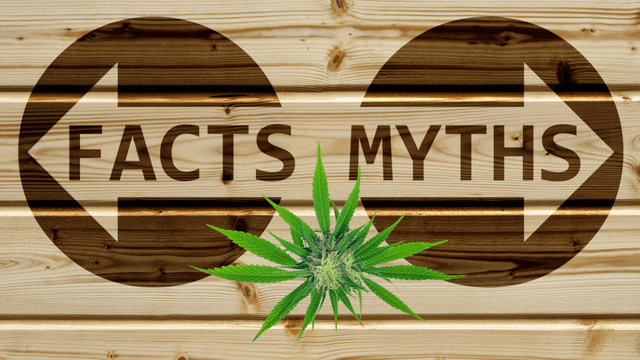Cannabis and Mental Health: Myths vs. Facts
Cannabis, also known as marijuana, has been a subject of much debate, especially concerning its effects on mental health. As legalization spreads, understanding the truth about cannabis and its impact on mental well-being is crucial. This blog will explore common myths and present the facts to provide a clearer picture of cannabis and mental health.
Myth 1: Cannabis Always Causes Anxiety and Paranoia
Fact: While it’s true that some individuals experience anxiety and paranoia when using cannabis, this is not a universal effect. The impact of cannabis on anxiety largely depends on the strain, the THC to CBD ratio, dosage, and the user’s individual response. High-THC strains can trigger anxiety in susceptible individuals, whereas strains high in CBD are known for their calming effects and can potentially reduce anxiety.
Myth 2: Cannabis Leads to Mental Illness
Fact: There is no conclusive evidence that cannabis directly causes mental illnesses such as schizophrenia or bipolar disorder. However, cannabis can exacerbate symptoms in individuals predisposed to these conditions. Studies suggest a complex relationship where cannabis might act as a trigger for those with a genetic vulnerability, but it does not cause mental illness in otherwise healthy individuals.
Myth 3: Cannabis is a Cure for All Mental Health Issues
Fact: While cannabis has therapeutic potential, it is not a cure-all for mental health issues. Some patients find relief from symptoms of anxiety, depression, PTSD, and other conditions through cannabis use, often due to its ability to promote relaxation and improve sleep. However, cannabis should be considered as part of a broader treatment plan and used under the guidance of a healthcare professional. Self-medicating without proper guidance can lead to misuse and worsen mental health symptoms.
Myth 4: Using Cannabis Leads to Addiction
Fact: Cannabis can be habit-forming, but it is less addictive than substances like alcohol, nicotine, and opioids. The risk of developing cannabis use disorder (CUD) exists, particularly with heavy, long-term use. Studies show that about 9% of cannabis users develop a dependency, compared to 15% for alcohol and 32% for tobacco. Moderation and mindful use are key to minimizing the risk of addiction.
Myth 5: All Cannabis Users Experience the Same Effects
Fact: The effects of cannabis are highly individualized. Factors such as genetics, tolerance, the method of consumption, and the specific strain all influence how cannabis impacts a person. Some may experience euphoria and relaxation, while others may feel anxious or lethargic. Personal experimentation and attention to how one’s body reacts are crucial in understanding how cannabis affects mental health on an individual level.
Myth 6: Cannabis Use Damages Cognitive Function Permanently
Fact: While heavy, prolonged cannabis use, especially starting in adolescence, can affect cognitive function and memory, moderate use in adults is less likely to cause long-term harm. Cognitive effects are often reversible after discontinuing use. However, during use, cannabis can impair short-term memory, attention, and decision-making, so it’s important to consider these effects, especially when engaging in tasks that require focus and clarity.
Conclusion
Understanding the relationship between cannabis and mental health requires separating myths from facts. While cannabis can affect mental health in various ways, both positively and negatively, its impact is highly individualized. Responsible use, awareness of personal responses, and professional guidance are essential for those considering cannabis for mental health purposes. As research continues to evolve, staying informed and approaching cannabis with an open but cautious mindset is key to harnessing its potential benefits while minimizing risks.
Recent Posts
- How to Talk to Your Kids About Marijuana June 28, 2024
- Marijuana and Athletes: Performance, Recovery, and Controversies June 21, 2024
- Understanding the Different Methods of Marijuana Consumption in 2024 June 17, 2024
- Marijuana and Creativity: How It Affects the Brain June 10, 2024
- Cooking with Cannabis: Easy Recipes to Try at Home May 30, 2024
Categories

Our team curates new experiences for cannabis tastemakers throughout Canada. We hand-craft each Pink Pack from a wide spectrum of flowers, edibles, concentrates, topicals, and handcrafted accessories.
Choose from our selection of tailored experiences…




